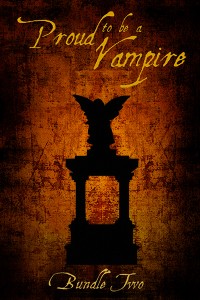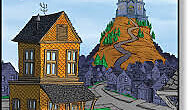
A quick Amazon search for vampire titles shows 21,103 Kindle ebook results; on Smashwords, that number was over three thousand. And while sociologists have looked at the cultural phenomenon surrounding the popularity and sexual appeal of vampire lore, one thing is for certain: fans of the genre have not tired of it yet.
When Good e-Reader first launched its Indie Author Initiative in 2010 to highlight the stories of authors who opted to try out this “new fangled” self-publishing option, the first author interviewed was Solomon Inkwell, whose own publishing experience mirrored that of many other writers who found themselves in Inkwell’s situation.
The author queried his very first agent with the requisite letter and three-chapter sample of his book, Vickie Van Helsing. The first agent did the unheard of and personally called Inkwell, gushing with praise for the sample. But then he said the ominous words that shaped publishing for this author: “But vampires are out…what else ya got?” Essentially, the agent loved everything about Inkwell’s writing, but knew he couldn’t pitch another vampire story to publishers. The end result was that the agent told Inkwell to give him a call if he ever wrote another book, and the phone call was over.
As Inkwell explained in the interview, “The traditional publishing industry might be done with vampires, but the readers are not.” He self-published the title to comfortable success.
Inkwell was far from alone, both in the writing and the publishing of vampire fiction. While critics have argued that the Twilight series sparked a brief wave of interest in paranormal romance, the genre has actually been around for decades. Fans have been enamored of mysterious creatures and the humans who love them for quite some time, and thanks to self-publishing, they didn’t fade into the oblivion of marketability.
As digital self-publishing was in its infancy, the paranormal fiction writers–the same ones who had the door slammed in their faces by agents and publishers not for their lack of writing ability or quality titles but because of the supposition that there were enough books with these subject matters–were perhaps the first to flock to the option. These same authors were also the first to give rise to the ultimate success, both monetarily and stigma-wise, with names like Amanda Hocking and Barbara Freethy posting inexpensive ebooks that sated their readers’ thirst for blood…make that, stories.
Interestingly, the genre is possibly even stronger than ever now that self-publishing has reached almost every global market and companies who assist authors with their book needs have risen to help them get their work to market. As authors and readers fueled the self-publishing “craze” with their intense interest in these titles, the result has been a stronger publishing option for nearly every genre. The industry and the authors have vampires to thank for it.
Mercy Pilkington is a Senior Editor for Good e-Reader. She is also the CEO and founder of a hybrid publishing and consulting company.
